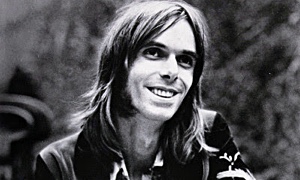Home » Jazz Articles » Film Review » Linton Garner: I Never Said Goodbye
Linton Garner: I Never Said Goodbye
When I was ten years old

Curiously, the brothers Garner never fought. The elder Garner recalls how Erroll surpassed Linton as a keyboard player right away, although their mother knew how to keep Erroll in line. “Erroll,” said his mother, “you’re not a star until you’re on the outside of the kitchen door.”
Linton Garner died of heart failure, the same malady that claimed his brother. Linton’s family was set to visit Erroll in Los Angeles but it never had the chance. Erroll had a heart attack in a hotel elevator and was pronounced dead at the hospital on January 7, 1977. His big brother, Linton, pursued a career in Canada to the ripe age of 87. Before he died, however, Linton wanted to pay a musical tribute to his lost brother. Linton Garner: I Never Said Goodbye is the story behind that composition. Wisely, director Colin Browne decided that there was no way to tell Linton’s musical story without exploring the man’s humanity.
Garner was no musical slouch, either. Linton’s career included pioneering work with Billy Eckstine, Billy Strayhorn, Art Blakey, Dizzy Gillespie and Fletcher Henderson (who had a mutiny on his hands when he demanded that the band dump Linton Garner in order to be hired – a show of solidarity that Garner admitted would not happen today).
The tribute comes with some suspense. On the day of the recorded performance, June 29, 2002, saxophonist Stewart Loseby grinned backstage at Linton’s intent: “He’s been talking about this for at least 17 years.”
The documentary’s most compelling treasures are Garner’s memories of over 70 years in show business. From suffering racism in Pittsburgh in the 1920s to sharing jokes with comrades before this performance, Linton Garner’s twinkling eyes flickered to their dying flame. The music world was Garner’s most extended family. Indeed, some of this film’s most touching moments are merely pictures of an aged Linton Garner exchanging hugs with individual admirers after he had played tribute to his brother, Erroll. A musician seeking greater credit might have recorded this concert in Las Vegas instead of North Vancouver, BC (Canada).
”I don’t think he ever travelled that much outside the country, like his brother Erroll did” said John Hicks, “but people have come to see him from outside the country.”
Producers Cari Green and Harry Sutherland must be commended for so simply portraying what was most important to Garner: people. If Linton Garner: I Never Said Goodbye suffers slightly from a lack of polish, all is forgotten when Garner accepts the applause for his musical tribute: ”The most powerful word is five letters: it’s t-h-a-n-k-s. Thanks. That’s it.”
Linton Garner : March 25, 1915 – March 6, 2003.
Production Notes:
DVD will be available in the future.
Web site:
To order the documentary: Producers on Davie
Photo Credit
Rosamond Norbury
Tags
PREVIOUS / NEXT
Support All About Jazz
 All About Jazz has been a pillar of jazz since 1995, championing it as an art form and, more importantly, supporting the musicians who make it. Our enduring commitment has made "AAJ" one of the most culturally important websites of its kind, read by hundreds of thousands of fans, musicians and industry figures every month.
All About Jazz has been a pillar of jazz since 1995, championing it as an art form and, more importantly, supporting the musicians who make it. Our enduring commitment has made "AAJ" one of the most culturally important websites of its kind, read by hundreds of thousands of fans, musicians and industry figures every month.






















